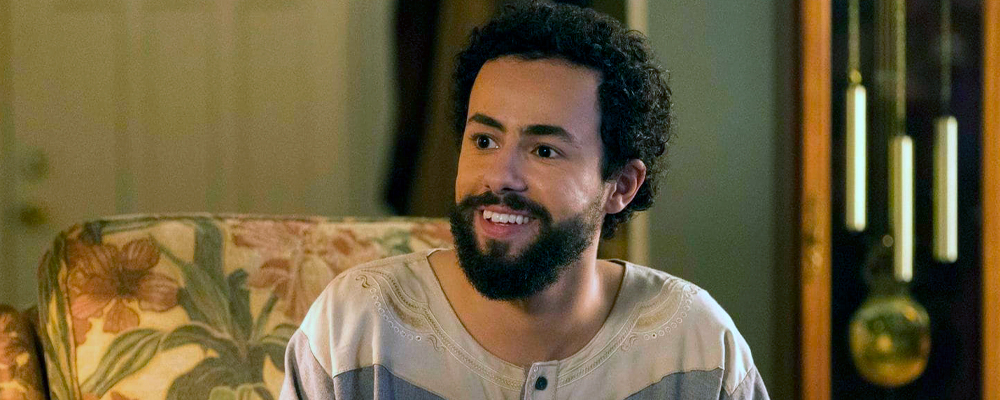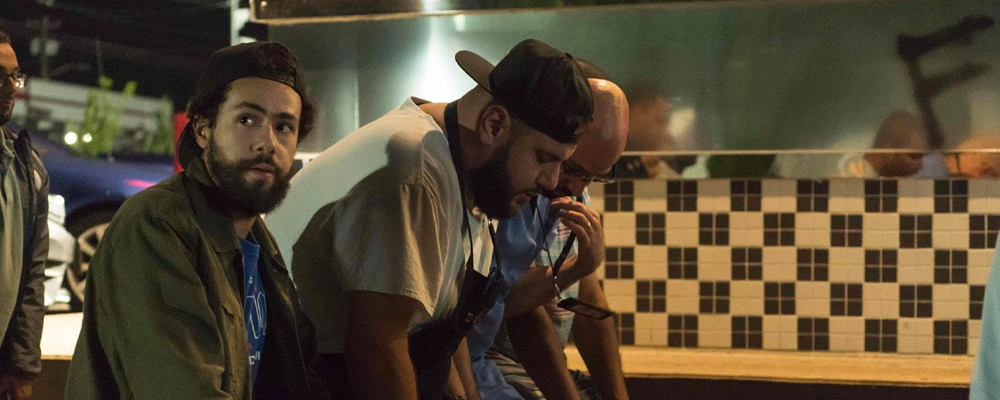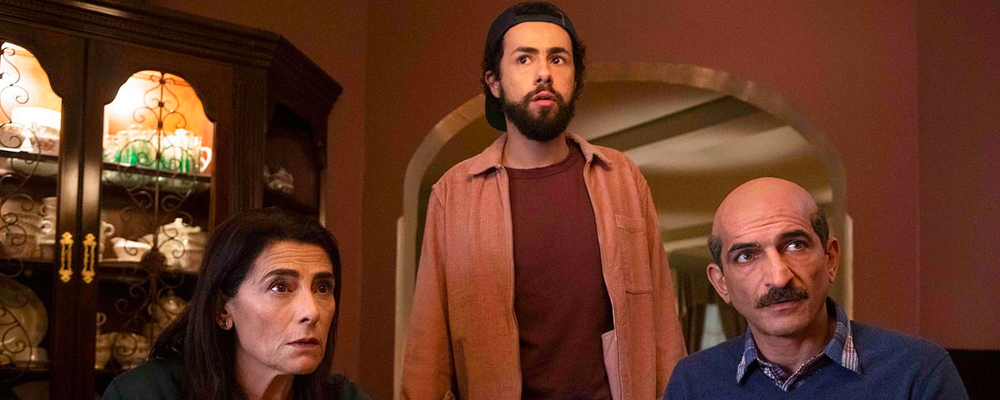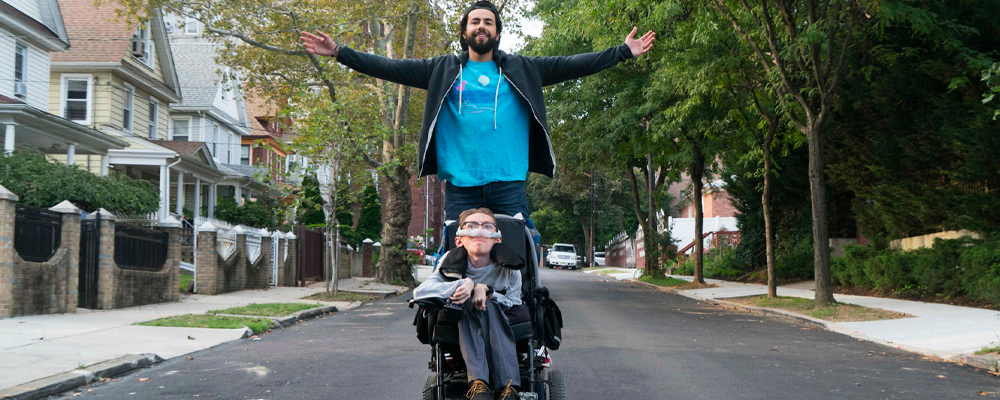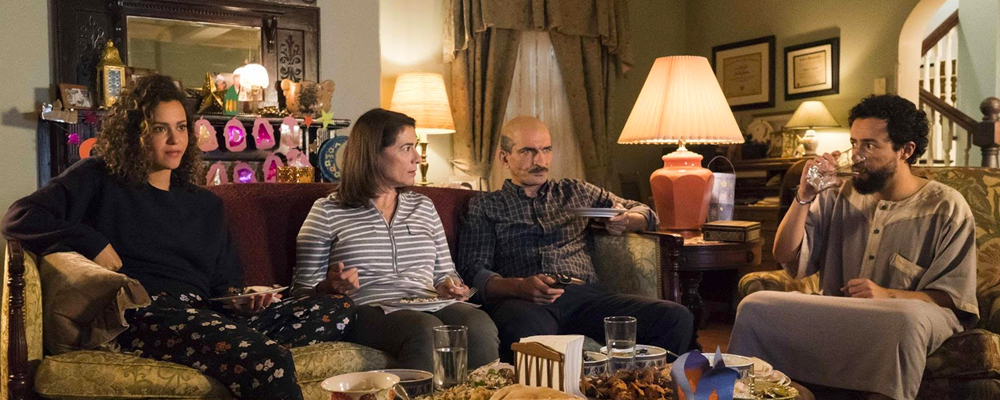‘Ramy’ Riotously Captures Being a Muslim Millennial in America
Alci Rengifo
The path of the millennial gets complicated regardless of cultural background, and yet where we come from makes the journey even trickier. Hulu’s new comedy series “Ramy” takes a look at life as it is now from the Muslim millennial perspective. Ramy Youssef co-created, produces and stars in this brilliant and heartfelt show, creating a character doing the double duty of capturing both a generation and specific minority. The beauty of the writing is that it celebrates Muslim American culture yet much of it is more than relatable to viewers from other backgrounds. It celebrates a community and its contours while becoming universal.
Ramy (Youssef) is the son of Egyptian and Palestinian immigrants living in modern-day New Jersey. At home it’s just him, his parents Maysa (Hiam Abbass) and Farouk (Amr Waked) and younger sister Dena (May Calamawy). Ramy doesn’t have his own car and kind of has a job with a small start-up. He’s at the age where his friends and family bug him constantly about the need to get married soon. All this cultural pressure is a bit hard for Ramy considering he feels attached to his identity yet isn’t the most pious Muslim. He doesn’t wash properly before prayers, he sleeps not only outside of marriage but with white girls and he drinks alcohol. But when a Muslim girl on a date wants to have sex he freaks out, and drugs in particular make him shy away. When the start-up goes under Ramy has little choice but to work for his diamond-dealer uncle Naseem (Laith Nakli), a street-smart guy who also believes in Jewish conspiracy theories. As he continues to try and solve the riddle of himself and the search for love, Ramy is joined by his best friend Steve (Steve Way), who gives terrible advice.
“Ramy” is not only hilarious but also groundbreaking. Never have Muslim Americans been given this kind of great portrayal in a U.S. series. The other creators are Ryan Welch and Ari Katcher, who along with Youssef have crafted a show that combines millennial angst with the very experience of being Muslim in a post-9/11 America. Ramy is a young man living in a society moving at an incredibly fast pace, where relationships are fleeting and job security nonexistent. But he’s expected to get married and have a secure position in something, his parents who come from another era, if not another world, are loving and supportive, but just don’t get why Ramy seems stuck. His sister does get it however, and when Ramy announces he feels he should start looking for a wife Dena chews him out. Now she will start getting even more pressure to marry and have children. This is of course not a specifically Muslim experience. Latinx viewers will surely be able to relate to the family dynamics, the experience of being a young person living in the U.S. with immigrant parents, the weird guilt that religious cultural habits impose when you step out of the box. In the second episode Ramy starts seeing a Jewish girl related to a man Naseem does business with named Sarah (Molly Gordon). Their first meeting, in a room aglow with Passover candles, is surely one of the most beautiful representations of attraction overcoming superficial differences this year in a show. But once the two go to a party and Sarah offers him ecstasy, Ramy panics and walks away. Like a Catholic raised within a specific belief system and shocked when others within that system break the code, Ramy just doesn’t know how to deal with it. This is better expressed when he goes on a date with a Muslim girl who suddenly wants to have sex in her car and he can’t go through with it. It’s funny, but at the same time a sharp observation of the kind of experience people from many other, specific backgrounds go through at times. The series is never judgmental about Islam as a faith, but is honest about a generation coming of age in a world of shifting habits and ideas. Some of the discussions the younger characters have with the older ones are akin to what very Christian families in red states must be experiencing as well. Over dinner Dana almost delights in messing with the very conservative Naseem, who critiques her clothing and table habits. She explains it away as due to her period, and Naseem can only agree and warn her not to touch any Korans.
“Ramy” also captures life within an immigrant community with vivacity and a satirical edge. A lot of the writing works like smart commentary. When Dena complains that Naseem is an anti-Semite, Farouk ponders how that’s even possible when they themselves are Semitic. Naseem is indeed that strange racist within a minority, spouting conspiracy theories about Jews and 9/11 while still doing business with the local Jewish community. And at parties Ramy’s friends just can’t fathom why he would love a white girl. But this show is also a general indictment of all racism, in particular the kind of Islamophobia that has been in vogue since 2001. The fourth episode in this season is a flashback that focuses on Ramy’s own childhood experiences, going through puberty while experiencing the fear and paranoia following the Twin Tower attacks. In a stroke of dark humor, Maysa sends Ramy to school that day with a walkie talkie (because a cell phone is still too expensive), and radios him in class while everyone watches the news reports. To look good with the leering white neighbors Farouk hangs a big American flag on the porch. The episode focusing on Maysa, played by the great Israeli actress Hiam Abbass, and her Palestinian background reminds us powerfully that everyone has a story. When she drives Uber we sense the subtle racism in passengers when she offers them authentic Egyptian food.
“Ramy” is full of great laughs that poke fun at the way people in their late 20s and early 30s are living in American suburbia, but it is also a powerful celebration of the immigrant experience, specifically the Middle East community. It does what many special shows do, which is provide a universal sensation while allowing us to live with someone else for just a little while. In doing so, it helps not only laugh, but learn.
“Ramy” season one premieres April 19 on Hulu.

